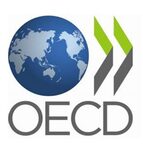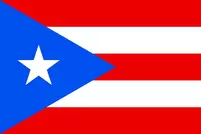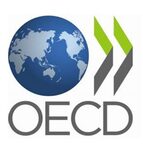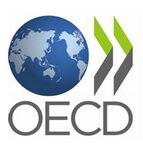|
Registration is open for the OECD’s upcoming tax webcast.
The live webcast will be held on May 4, 2020, between 14:00-15:00 (CEST). The webcast will feature experts from the OECD’s Centre for Tax Policy and Administration who would provide the latest update on the OECD’s current work in tackling COVID-19 and describe how the OECD has adapted its programme of work on international tax matters. The webinar will feature a 45-minute presentation, followed by a 10-15-minute Q&A session. See Registration details On April 19, 2020, the Puerto Rican Office of the Governor announced that Governor Wanda Vázquez Garced has signed into law a bill containing several amendments to the Puerto Rico Tax Reform passed last year.
The new law, Law 40-2020, eliminates the tax on the provision of services rendered to other businesses and designated professional services, known as B2B, on 85% of taxpayers, increasing (from USD 200,000 to USD 300,000) the business volume that will be tax exempt. The law also eliminates the special 1.5% tax for professional and advisory services provided to the government in excess of USD 300,000. See Announcement On April 15, 2020, the US Internal Revenue Service (IRS) issued a set of frequently asked questions (FAQs) based on the IRS' observations of best practices and common mistakes in preparing transfer pricing documentation.
These FAQs and responses are illustrative in nature. The responses, and examples therein, are high-level only and should not be relied on to analyze actual transactions, the IRS said. Following six questions are addressed:
See FAQs On April 14, 2020, Irish Revenue issued a note on the revised tax treatment of royalty income under the provisions of the Ireland-Lithuania tax treaty.
Ireland’s tax treaty with Lithuania came into effect in 1999, which notes that the tax treatment of royalty income may be revised if more favorable terms are subsequently agreed by Lithuania with another OECD country. Lithuania recently agreed such terms with Japan and those terms are now to apply to the Ireland-Lithuania tax treaty with effect from January 1, 2019. Tax and Duty Manual Part 35-01-12 has been created to provide details. See Part 35-01-12 On April 9, 2020, the OECD published stage 2 peer review monitoring reports of a further seven jurisdictions as part of its work on Action 14 of the base erosion and profit shifting (BEPS) project.
The reports concern the following seven jurisdictions: Austria, France, Germany, Italy, Liechtenstein, Luxembourg, and Sweden. The reports evaluate the progress made by these seven jurisdictions in implementing any recommendations resulting from jurisdictions' stage 1 peer review reports. The stage 2 monitoring considers any developments in the period April 1, 2017 – September 30, 2018, and the mutual agreement procedure (MAP) statistics are based on years 2016 and 2017. The results from the peer review and peer monitoring process demonstrate positive changes across all seven jurisdictions, although not all show the same level of progress, the OECD said. According to the OECD, all jurisdictions now have a documented notification/bilateral consultation process to be applied in cases where an objection is considered as being not justified by their competent authority. The report reveals that Austria, Germany, Italy, Luxembourg, and Sweden have added more personnel to the competent authority function, and/or made or initiated several organisational improvements with a view to handling MAP cases in a more timely, effective, and efficient manner. The report further reveals that Austria, Germany and Sweden decreased the amount of time needed to close MAP cases, and Liechtenstein and Luxembourg met the sought-after 24-month average time frame to close MAP cases. Austria introduced legislative changes to ensure that all MAP agreements can be implemented notwithstanding domestic time limits if the treaty does not provide for it, while in five of the other six, this is already the case. Last, Austria, Germany, Luxembourg, and Sweden have updated or clarified issues in their MAP guidance. See Reports On April 8, 2020, the US Internal Revenue Service issued a document containing final regulations providing guidance on hybrid dividends and dual consolidated losses.
The guidance deals with certain amounts paid or accrued pursuant to hybrid arrangements, which generally involve arrangements whereby US and foreign tax law classify a transaction or entity differently for tax purposes. The document contains final regulations relating to dual consolidated losses and entity classifications to prevent the same deduction from being claimed under the tax laws of both the US and a foreign jurisdiction. Finally, the document contains final regulations regarding information reporting to facilitate the administration of certain rules in the final regulations. The final regulations affect taxpayers that would otherwise claim a deduction related to such amounts and certain shareholders of foreign corporations that pay or receive hybrid dividends. The regulations are effective from April 8, 2020. See Regulations Poland has temporarily suspended the reporting of cross-border tax arrangements under the country’s DAC6 law.
The Government said that the deadlines for submitting the forms are suspended until June 30, 2020. The decision was taken in view of the COVID-19 pandemic. The suspension is applicable to both domestic and cross-border arrangements. See Announcement On April 6, 2020, the Dutch Government issued guidance on the application of the OECD’s Multilateral Instrument to implement tax treaty-related base erosion and profit shifting measures.
Netherlands ratified the BEPS MLI on March 29, 2019, and the Instrument entered into force for Netherlands on July 1, 2019. The guidance covers the following information: what is the MLI, how does the MLI work, and when does the MLI apply. It includes a table setting out the tax treaties that are affected by the MLI. See Guidance On April 3, 2020, the OECD issued recommendations on implications of the COVID-19 crisis on cross-border matters based on an analysis of the international tax treaty rules.
The guidance deals with issues affecting the residence of companies for tax purposes, where their management is carried out in another country due to the travel and quarantine restrictions. The guidance notes that it is unlikely that the COVID-19 situation will create any changes to an entity’s residence status under a tax treaty. The guidance states: “A temporary change in location of the chief executive officers and other senior executives is an extraordinary and temporary situation due to the COVID-19 crisis and such change of location should not trigger a change in residency, especially once the tie breaker rule contained in tax treaties is applied.” The guidance also addresses concerns relating to the creation of permanent establishments and change to the residence status of individuals. See Document On April 1, 2020, the OECD’s Multilateral Instrument to tackle base erosion and profit shifting (BEPS) entered into force for Liechtenstein and Qatar.
Both countries ratified the BEPS MLI in December last year. Liechtenstein and Qatar have committed to include 14 and 76 of their tax treaties, respectively, under the BEPS MLI. |
Archives
March 2024
|
COMTAX ABC/o Ekonomiforetaget Baehring Dahl AB
Berga Alle 3 25452 Helsingborg Sweden |
CONTACTTel.: +46 46 590 07 70
E-mail: support(@)comtaxit.com |
INFORMATION |
© COPYRIGHT 1985 - 2024 COMTAX AB. ALL RIGHTS RESERVED.










